Traveling is an incredible experience that allows us to explore new places, cultures, and create unforgettable memories. However, it often comes with a price tag that can put a dent in our wallets. The good news is that there are numerous savvy strategies and tips that can help you stretch your travel budget without compromising on the quality of your journey. In this article, we will uncover the best ways to save money, offering practical advice and insider tips that will empower you to embark on your dream adventures without breaking the bank.
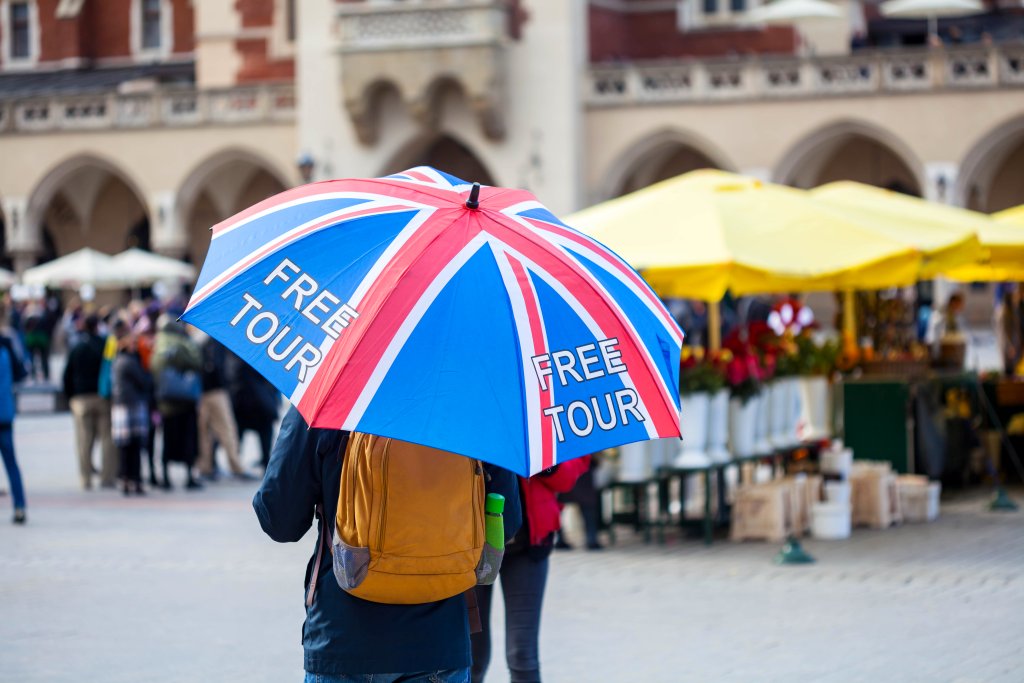
One of the most cost-effective ways to explore a new destination while saving money is by taking advantage of free walking tours. These tours, led by knowledgeable local guides, offer a fantastic opportunity to delve into the heart of a city’s culture, history, and hidden gems.
In many big cities around the world you can find free walking tours. These tours typically last a few hours and provide fascinating insights into the city’s past and present.
While the tours themselves are free, it’s customary to tip the guide at the end based on your satisfaction.
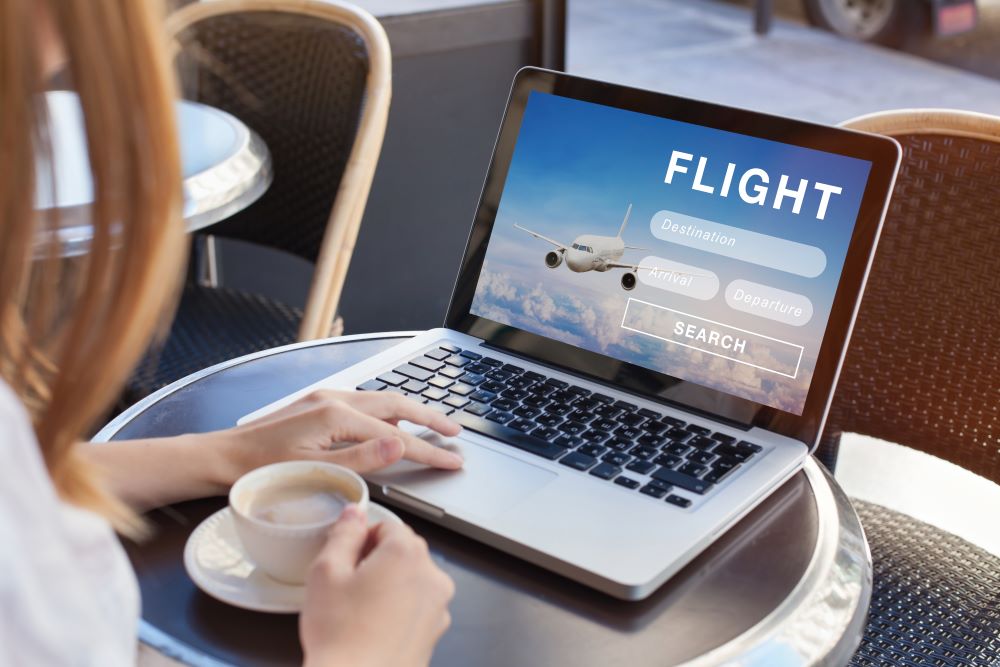
When it comes to saving money on your travels, securing affordable flight deals can make a significant difference in your overall budget. Finding discounted airfare requires a bit of time and effort, but it allows you not to waste too much money in a plane ticket. Here are some strategies to help you score the best flight deals:
Use Flight Search Engines: Utilize online flight search engines like Google Flights, Skyscanner, Kayak, or Skiplagged to compare prices from various airlines and booking websites. These platforms often allow you to set up fare alerts for your preferred routes, notifying you when prices drop.
Use the incognito or private browsing mode: When you search for flights repeatedly without using incognito mode, airlines and booking websites can track your search history and potentially raise prices based on your perceived interest or urgency. Using incognito mode helps prevent price increases based on your search history, allowing you to compare the best prices without any potential biases.
Be Flexible with Dates: Book flights on weekdays or during off-peak seasons. Use fare calendars on search engines to identify cheaper flights.
Consider Nearby Airports: Check if there are alternative airports near your destination. Sometimes, flying into or out of a nearby airport can be more budget-friendly, especially if you’re willing to take a short train or bus ride to your final destination.
Book in Advance: Generally, booking flights well in advance can help you secure lower prices. Aim to book your tickets at least a few weeks ahead, but avoid booking too early, as prices can fluctuate.
Use Miles and Rewards: If you’re a frequent traveler, consider using airline miles or credit card rewards points to cover the cost of flights. Many credit cards offer sign-up bonuses and rewards programs that can be redeemed for travel expenses.
Follow Airlines on Social Media: Airlines often announce special promotions and deals on their social media accounts. Follow them to stay updated on flash sales and limited-time offers.
Check for Error Fares: Occasionally, airlines or booking websites may publish incorrect fares due to technical glitches. Websites like Secret Flying and The Flight Deal specialize in spotting and sharing these error fares.
Clear Browser Cookies: Some websites may track your browsing history and show you higher prices if they detect repeated searches for the same flights. Clear your browser cookies or use an incognito/private browsing window to avoid this.
Consider Budget Airlines: Look into budget airlines, which often offer lower fares but may have additional fees for baggage and other services. Calculate the total cost to see if it’s truly a budget-friendly option.

An other money-saving strategy is to explore off-season travel. Flights, accommodations, and even dining tend to be more affordable, allowing you to stretch your budget further. You can often find excellent deals on hotel rooms, rental cars, and package tours.
Traveling during the off-season means fewer tourists. This translates to shorter lines at popular attractions, less crowded museums, and a more relaxed atmosphere overall. You’ll have a chance to savor the beauty and charm of your destination without the hustle and bustle of peak-season crowds.
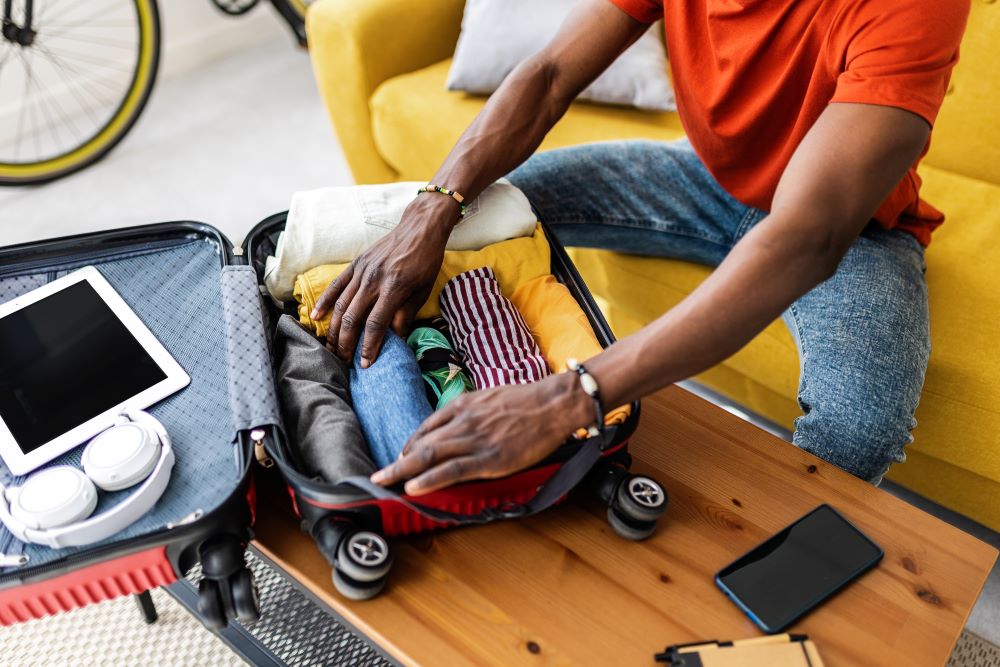
Packing efficiently is not only a great way to save money but also ensures convenience and flexibility during your travels. Here are some practical tips:
1. Choose the right suitcase: Each airline has different guidelines on what counts as hand luggage, but you’ll usually end up with more money in your pocket if you opt for a smaller bag.
2. Packing Essentials:
Travel Documents: Keep your passport, identification, tickets, and travel documents in a secure and easily accessible pocket of your carry-on bag. It’s a good idea to have both physical and digital copies.
Medications: Carry any essential medications in your bag, along with copies of prescriptions if necessary.
Valuables: Keep valuable items like electronics, jewelry, and money with you rather than in checked luggage.
3. Clothing:
Layering: Pack versatile clothing that can be layered for different weather conditions. This allows you to adapt to changing temperatures without needing a large suitcase.
Roll, Don’t Fold: Rolling clothes instead of folding them can save space and reduce wrinkles.
Use Packing Cubes: Packing cubes can help you organize your clothing and maximize space in your carry-on bag.
4. Toiletries:
Compliance with TSA Regulations: Ensure your toiletries comply with the Transportation Security Administration (TSA) regulations for carry-on liquids, which generally means containers of 3.4 ounces (100 milliliters) or less in a quart-sized, resealable plastic bag.
Solid Toiletries: Consider using solid toiletries like shampoo bars and solid toothpaste to save space and avoid liquid restrictions.
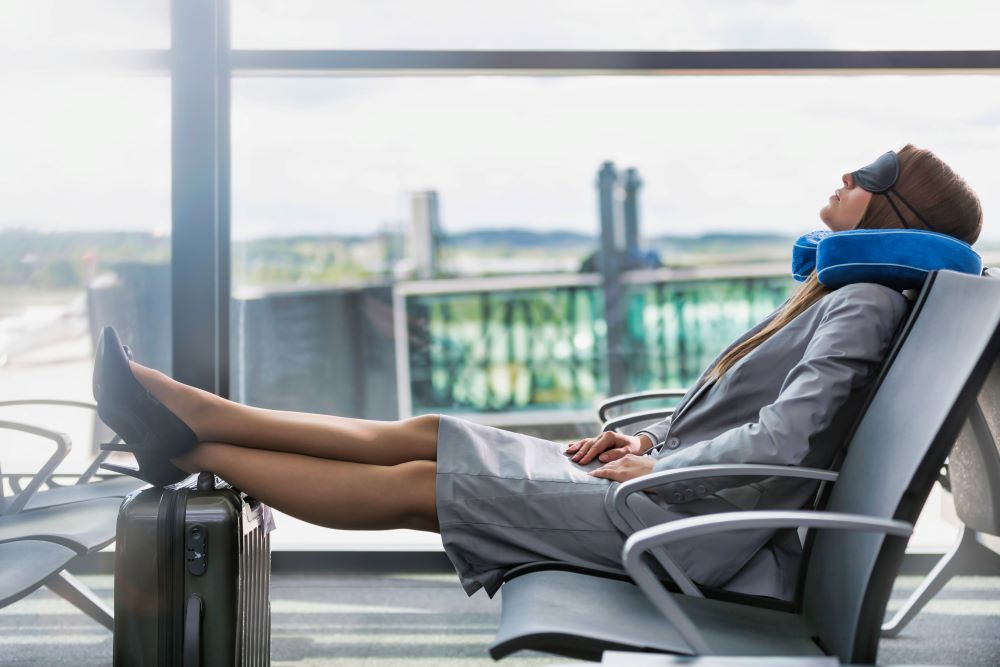
5. Footwear:
Wear Bulky Shoes: If you need to bring larger or heavier shoes, wear them during your flights to free up space in your bag.
Use Shoe Bags: Place shoes in shoe bags or shower caps to prevent them from soiling your clothes.
6. Snacks and Drinks:
Own Food: Pack some healthy snacks to avoid the high cost of airport food. Just ensure they comply with security regulations.
Reusable Water Bottle: Save money on bottled water by carrying a travel water bottle with you and filling it up at the airport, water fountain or in your accommodation.
9. Personal Comfort:
Neck Pillow and Eye Mask: Consider bringing a neck pillow and eye mask for more comfortable rest during your flight.
By efficiently packing your carry-on bag, you not only save on baggage fees but also have the peace of mind of having your essentials with you in case your checked luggage is delayed or lost. It also makes navigating through airports and changing flights more convenient and stress-free.

When you’re looking to explore a city’s top attractions while keeping your travel expenses in check, city passes can be a valuable money-saving tool. These passes are designed to provide convenient access to multiple sights and activities at a reduced cost compared to purchasing individual tickets. Here’s how city passes work and how to make the most of them:
Savings: A City Pass guarantees significant savings as it offers admission to numerous attractions at an affordable price – one ticket, all-inclusive!
Validity: Most city passes are valid for a specific duration, such as 1, 2, 3, or 7 days. You can usually use the pass on consecutive days, starting from the first day of activation.
Attraction Choices: City passes include a list of the most popular landmarks, guided tours and museums you can visit for free. It offers unrestricted flexibility, allowing you to decide which attractions to visit and when to visit them.
Skip Lines: Many city passes offer skip-the-line privileges, allowing you to bypass long queues at popular attractions. This not only saves time but also enhances your overall experience.
City passes are especially beneficial for travelers who want to explore a city’s major attractions efficiently and save on individual entrance fees.
City Passes for Sightseeing

Be sure to check out the free attractions like national landmarks, parks and museums. Many attractions offer free admission on specific days of the week or month. Do some research before your trip to find out when these free days are. Some places might also have extended evening hours with free or reduced entry.
If you’re eligible for discounts based on age or student status, don’t forget to bring your identification. Many attractions offer reduced rates for students, seniors, and young travelers.
Before your next trip starts, search online for promotions, coupons, or additional discounts for specific attractions. Many times, official websites or third-party platforms offer savings you can take advantage of.

Explore budget-friendly accommodation options like hostels, guesthouses, Airbnb, or vacation rentals, and compare prices before booking. Boarding at a hostel can be a fraction of the cost of a hotel room. Accomodation with kitchen facilities allows you to save more money by giving you a place to cook your own food. And unlike many hotels, you will not be on the hook for things like resort fees or parking fees.
Additionally, consider exploring alternatives like Couchsurfing or overnight transportation options like sleeper trains or buses.
Finally, don’t hesitate to negotiate room rates in certain regions, especially for longer stays or during off-peak seasons.
Rather than eating out for every meal, shop at local grocery stores or markets for snacks and inexpensive meals. This way you can also get to know the local cuisine.
Utilize public transit rather than taxis or ride-sharing services, as it’s usually more cost-effective. Consider buying multi-day passes for unlimited rides.

Renting a car can provide the freedom to explore off-the-beaten-path destinations and tailor your road trip to your preferences. Research and compare rental car prices, f.e. in Check24, to find the best deals and options for your specific needs and budget.
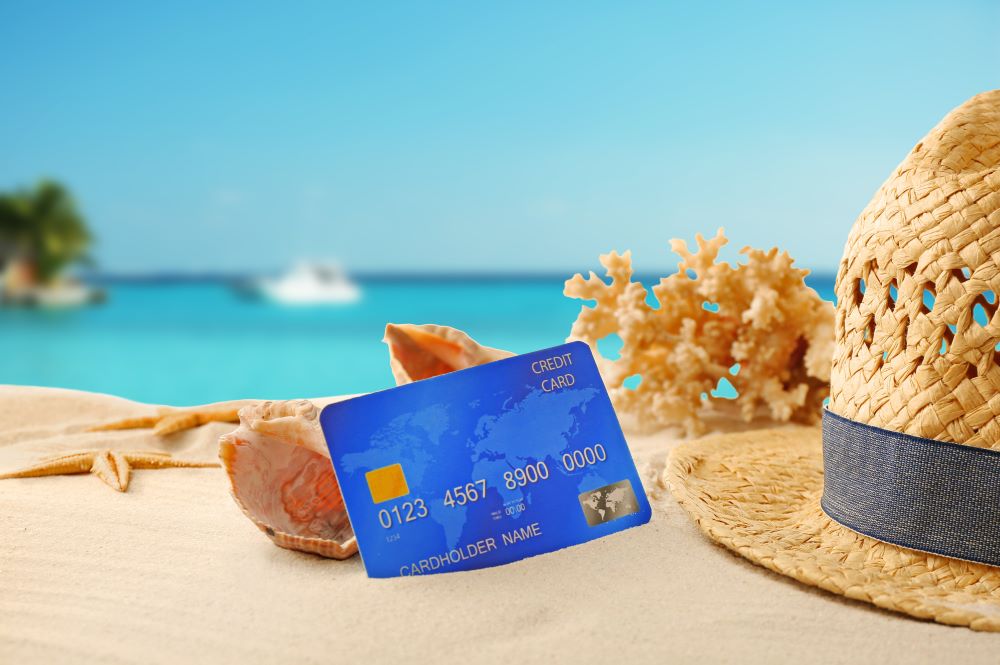
Purchase trip insurance to protect yourself from unexpected expenses such as trip cancellations, medical emergencies, or lost luggage.
When it comes to managing your finances while traveling, using a travel credit card (f.e. Revolut Card) without foreign transaction fees and annual fee can be a smart and money-saving choice. These cards are designed to minimize or eliminate fees associated with foreign transactions, making them a valuable tool for budget-conscious travelers. Don’t go into financial ruin by paying interest on credit cards.
Be mindful of currency exchange rates and fees when converting money. Use ATMs to withdraw local currency for better rates.